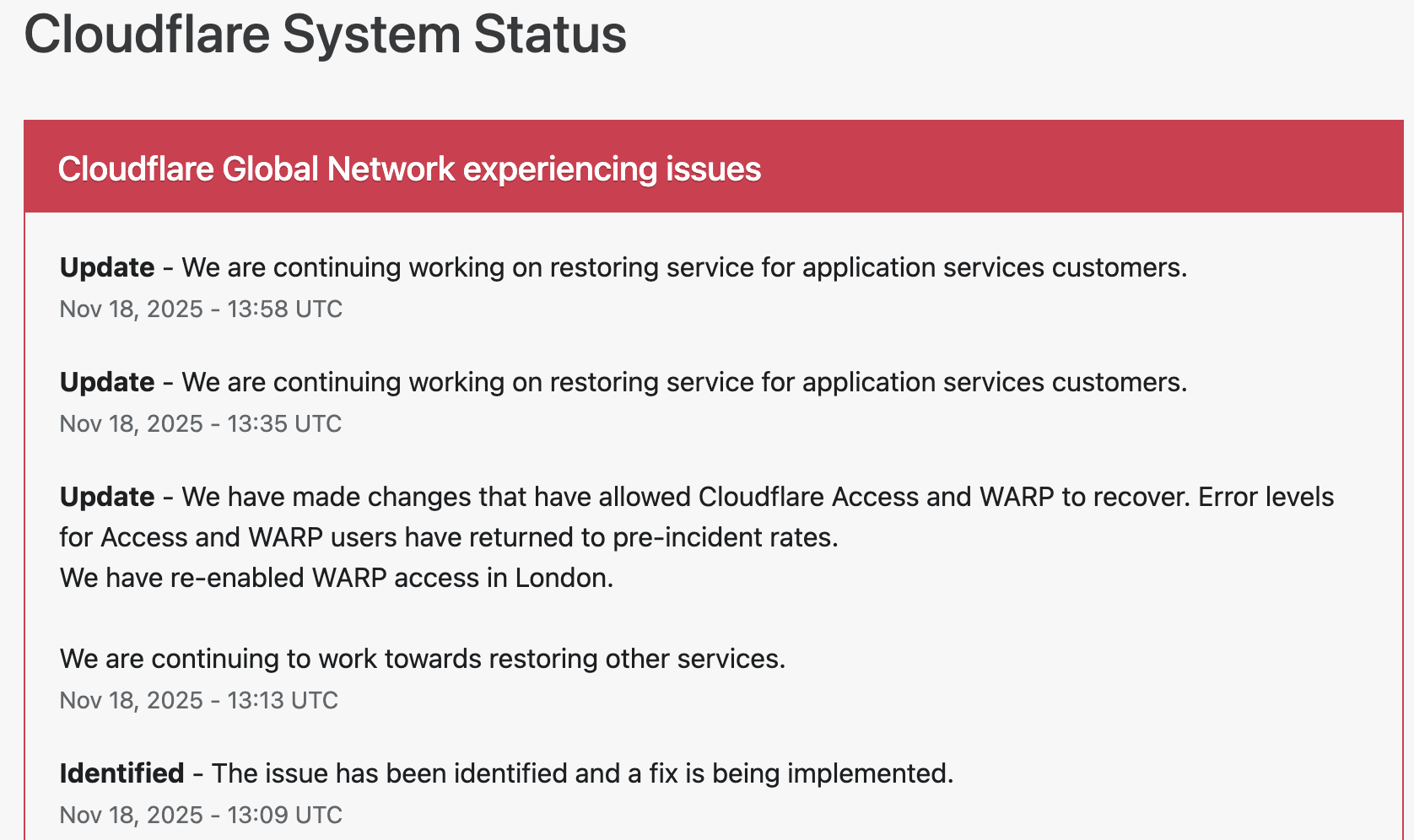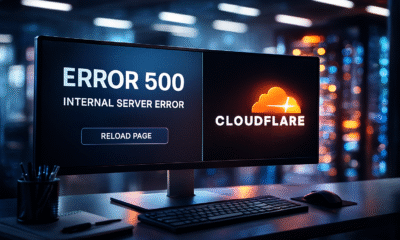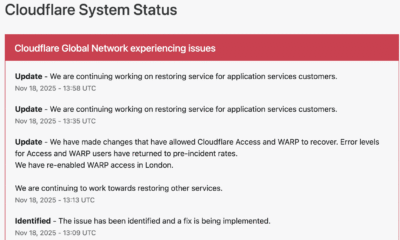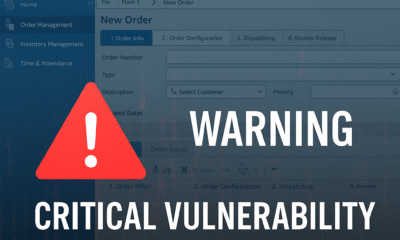data breaches
Morocco Grapples with Rising Cybercrime Wave Impacting Individuals and Institutions

Morocco is witnessing a sharp increase in cybercrimes, including fraud, sextortion, and data theft, targeting both individuals and major institutions such as banks and private companies. Authorities and cybersecurity experts have raised alarms about the growing sophistication of these crimes, which pose significant risks to financial stability, personal privacy, and national security.
A Surge in Cybercrime Activity
In recent months, Moroccan law enforcement agencies have reported a surge in cybercriminal activities. Fraudulent schemes, including phishing attacks and fake investment opportunities, have become increasingly prevalent. These schemes often deceive victims into disclosing sensitive information or transferring funds under false pretenses.
Sextortion cases are also on the rise, with perpetrators exploiting social media platforms to target victims. Criminals often gain access to private content through hacking or deception and use it to extort money under the threat of public exposure.
Meanwhile, data theft incidents are escalating, affecting both individuals and high-profile organizations. Hackers have targeted banks, private companies, and even governmental entities, leading to breaches that expose sensitive customer information and operational data.
Impact on Institutions
Morocco’s financial sector has been a primary target of cyberattacks, with banks reporting an uptick in hacking attempts aimed at accessing customer accounts and stealing funds. Cybercriminals are employing advanced techniques, including malware and ransomware attacks, to infiltrate systems and disrupt operations.
Private companies, particularly in sectors such as retail, telecommunications, and healthcare, have also been affected. The stolen data often ends up on the dark web, where it is sold to third parties or used for further criminal activities.
“The scale and complexity of these attacks are unprecedented,” said Youssef Bennani, a cybersecurity consultant. “Organizations must urgently strengthen their defenses to protect themselves and their customers.”
Individuals at Risk
For ordinary Moroccans, the rise in cybercrime means increased vulnerability to scams and privacy breaches. Online fraudsters often prey on the lack of awareness among internet users, particularly targeting younger and elderly demographics. Social engineering tactics, including impersonation and fake profiles, are commonly used to gain victims’ trust.
“The emotional and financial toll on victims is immense,” said Amal Idrissi, an advocate for cybercrime victims. “Many individuals suffer in silence, fearing stigma or further harm if they come forward.”
Law Enforcement Response
Moroccan authorities have intensified efforts to combat cybercrime, launching investigations, arrests, and awareness campaigns. The National Cybersecurity Directorate, under the Ministry of Digital Transition and Administration Reform, has been actively monitoring and responding to threats.
In a recent high-profile operation, law enforcement dismantled a network involved in sextortion schemes targeting international victims. Several suspects were arrested, and electronic devices containing incriminating evidence were seized.
However, experts warn that existing measures may not be sufficient to keep pace with the rapidly evolving tactics of cybercriminals.
Strengthening Cybersecurity Measures
To address the growing threat, cybersecurity experts emphasize the need for a multi-pronged approach:
- Enhanced Legislation: Strengthening laws related to cybercrime to ensure adequate punishment and deterrence for offenders.
- Public Awareness Campaigns: Educating citizens about safe online practices, including recognizing scams and protecting personal information.
- Corporate Investment in Security: Encouraging businesses to adopt robust cybersecurity frameworks, including regular audits and staff training.
- International Collaboration: Partnering with global agencies to track and disrupt transnational cybercrime networks.
Broader Implications
The rise in cybercrime poses broader challenges for Morocco as it seeks to position itself as a digital hub in North Africa. Trust in online platforms and digital services is critical for economic growth and innovation, but frequent breaches could undermine confidence.
Moreover, the increasing reliance on digital systems across sectors makes it imperative for Morocco to adopt a proactive stance in cybersecurity. Failure to do so could have far-reaching consequences, from economic losses to compromised national security.
Looking Ahead
As Morocco grapples with this surge in cybercrime, the need for immediate and sustained action is clear. Strengthening the country’s cybersecurity infrastructure, educating the public, and fostering international cooperation will be key to mitigating the risks.
For individuals and institutions alike, vigilance remains the first line of defense against the growing wave of cybercrime. With a collective effort, Morocco can turn the tide against these digital threats and safeguard its future in an increasingly connected world.
Recent Cybercrimes in Morocco
- Bank Data Breach: A prominent Moroccan bank recently fell victim to a cyberattack where hackers infiltrated its database and accessed sensitive customer information, including account details and transaction histories. The stolen data was reportedly put up for sale on the dark web, exposing thousands of customers to potential fraud and identity theft.
- Sextortion Case Targeting Foreign Nationals: Authorities in Morocco uncovered a sextortion network operating out of major cities, including Casablanca and Marrakesh. Perpetrators posed as attractive individuals on social media platforms to lure victims into compromising video calls, which they secretly recorded. The criminals then demanded payments in exchange for not releasing the explicit content online. Several victims, including foreign tourists and expatriates, were targeted.
- Fake Investment Scams: Fraudsters created fake websites and social media profiles advertising investment opportunities in the booming Moroccan real estate and cryptocurrency sectors. Victims were promised high returns and persuaded to transfer money. Once the funds were received, the scammers disappeared, leaving investors with significant financial losses.
- Ransomware Attack on a Private Company: A leading Moroccan telecommunications firm suffered a ransomware attack that encrypted its internal systems and paralyzed operations for several days. The attackers demanded a hefty ransom in cryptocurrency to restore access. While the company did not disclose whether it paid the ransom, the attack caused substantial disruption to its services and reputation.
- Phishing Emails Targeting Students: Moroccan students applying for scholarships abroad were targeted by phishing emails impersonating official government or university communication. The emails contained malicious links designed to steal personal information, including passport numbers and financial details, which were later used for fraudulent activities.
- Hotel Data Theft: Hackers targeted a major hotel chain in Morocco, accessing guest reservation records, including names, contact details, and payment information. The breach caused significant embarrassment for the hotel group and raised concerns about cybersecurity in the tourism industry.
These incidents highlight the diverse and evolving nature of cybercrimes in Morocco, affecting individuals, businesses, and institutions across sectors.
data breaches
Cloudflare Outage Disrupts Global Internet — Company Restores Services After Major Traffic Spike

November 18, 2025 — MAG212NEWS
A significant outage at Cloudflare, one of the world’s leading internet infrastructure providers, caused widespread disruptions across major websites and online services on Tuesday. The incident, which began mid-morning GMT, temporarily affected access to platforms including ChatGPT, X (formerly Twitter), and numerous business, government, and educational services that rely on Cloudflare’s network.
According to Cloudflare, the outage was triggered by a sudden spike in “unusual traffic” flowing into one of its core services. The surge caused internal components to return 500-series error messages, leaving users unable to access services across regions in Europe, the Middle East, Asia, and North America.
Impact Across the Web
Because Cloudflare provides DNS, CDN, DDoS mitigation, and security services for millions of domains — powering an estimated 20% of global web traffic — the outage had swift and wide-reaching effects.
Users reported:
- Website loading failures
- “Internal Server Error” and “Bad Gateway” messages
- Slowdowns on major social platforms
- Inaccessibility of online tools, APIs, and third-party authentication services
The outage also briefly disrupted Cloudflare’s own customer-support portal, highlighting the interconnected nature of the company’s service ecosystem.
Cloudflare’s Response and Restoration
Cloudflare responded within minutes, publishing updates on its official status page and confirming that engineering teams were investigating the anomaly.
The company took the following steps to restore operations:
1. Rapid Detection and Acknowledgement
Cloudflare engineers identified elevated error rates tied to an internal service degradation. Public communications were issued to confirm the outage and reassure customers.
2. Isolating the Affected Systems
To contain the disruption, Cloudflare temporarily disabled or modified specific services in impacted regions. Notably, the company deactivated its WARP secure-connection service for users in London to stabilize network behavior while the fix was deployed.
3. Implementing Targeted Fixes
Technical teams rolled out configuration changes to Cloudflare Access and WARP, which successfully reduced error rates and restored normal traffic flow. Services were gradually re-enabled once systems were verified stable.
4. Ongoing Root-Cause Investigation
While the unusual-traffic spike remains the confirmed trigger, Cloudflare stated that a full internal analysis is underway to determine the exact source and prevent a recurrence.
By early afternoon UTC, Cloudflare confirmed that systems had returned to pre-incident performance levels, and affected services worldwide began functioning normally.
Why This Matters
Tuesday’s outage underscores a critical truth about modern internet architecture: a handful of infrastructure companies underpin a massive portion of global online activity. When one of them experiences instability — even briefly — the ripple effects are immediate and worldwide.
For businesses, schools, governments, and content creators, the incident is a reminder of the importance of:
- Redundant DNS/CDN providers
- Disaster-recovery and failover plans
- Clear communication protocols during service outages
- Vendor-dependency risk assessments
Cloudflare emphasized that no evidence currently points to a cyberattack, though the nature of the traffic spike remains under investigation.
Looking Ahead
As Cloudflare completes its post-incident review, the company is expected to provide a detailed breakdown of the technical root cause and outline steps to harden its infrastructure. Given Cloudflare’s central role in global internet stability, analysts say the findings will be watched closely by governments, cybersecurity professionals, and enterprise clients.
For now, services are restored — but the outage serves as a powerful reminder of how interconnected and vulnerable the global web can be.
data breaches
Cloudflare Outage Analysis: Systemic Failure in Edge Challenge Mechanism Halts Global Traffic

SAN FRANCISCO, CA — A widespread disruption across major internet services, including AI platform ChatGPT and social media giant X (formerly Twitter), has drawn critical attention to the stability of core internet infrastructure. The cause traces back to a major service degradation at Cloudflare, the dominant content delivery network (CDN) and DDoS mitigation provider. Users attempting to access affected sites were met with an opaque, yet telling, error message: “Please unblock challenges.cloudflare.com to proceed.”
This incident was not a simple server crash but a systemic failure within the crucial Web Application Firewall (WAF) and bot management pipeline, resulting in a cascade of HTTP 5xx errors that effectively severed client-server connections for legitimate users.
The Mechanism of Failure: challenges.cloudflare.com
The error message observed globally points directly to a malfunction in Cloudflare’s automated challenge system. The subdomain challenges.cloudflare.com is central to the company’s security and bot defense strategy, acting as an intermediate validation step for traffic suspected of being malicious (bots, scrapers, or DDoS attacks).
This validation typically involves:
- Browser Integrity Check (BIC): A non-invasive test ensuring the client browser is legitimate.
- Managed Challenge: A dynamic, non-interactive proof-of-work check.
- Interactive Challenge (CAPTCHA): A final, user-facing verification mechanism.
In a healthy system, a user passing through Cloudflare’s edge network is either immediately granted access or temporarily routed to this challenge page for verification.
During the outage, however, the Challenge Logic itself appears to have failed at the edge of Cloudflare’s network. When the system was invoked (likely due to high load or a misconfiguration), the expected security response—a functional challenge page—returned an internal server error (a 500-level status code). This meant:
- The Request Loop: Legitimate traffic was correctly flagged for a challenge, but the server hosting the challenge mechanism failed to process or render the page correctly.
- The
HTTP 500Cascade: Instead of displaying the challenge, the Cloudflare edge server returned a “500 Internal Server Error” to the client, sometimes obfuscated by the text prompt to “unblock” the challenges domain. This effectively created a dead end, blocking authenticated users from proceeding to the origin server (e.g., OpenAI’s backend for ChatGPT).
Technical Impact on Global Services
The fallout underscored the concentration risk inherent in modern web architecture. As a reverse proxy, Cloudflare sits between the end-user and the origin server for a vast percentage of the internet.
For services like ChatGPT, which rely heavily on fast, secure, and authenticated API calls and constant data exchange, the WAF failure introduced severe latency and outright connection refusal. A failure in Cloudflare’s global network meant that fundamental features such as DNS resolution, TLS termination, and request routing were compromised, leading to:
- API Timeouts: Applications utilizing Cloudflare’s API for configuration or deployment experienced critical failures.
- Widespread Service Degradation: The systemic 5xx errors at the L7 (Application Layer) caused services to appear “down,” even if the underlying compute resources and databases of the origin servers remained fully operational.
Cloudflare’s official status updates confirmed they were investigating an issue impacting “multiple customers: Widespread 500 errors, Cloudflare Dashboard and API also failing.” While the exact trigger was later traced to an internal platform issue (in some historical Cloudflare incidents, this has been a BGP routing error or a misconfigured firewall rule pushed globally), the user-facing symptom highlighted the fragility of relying on a single third-party for security and content delivery on a global scale.
Mitigation and the Single Point of Failure
While Cloudflare teams worked to roll back configuration changes and isolate the fault domain, the incident renews discussion on the “single point of failure” doctrine. When a critical intermediary layer—responsible for security, routing, and caching—experiences a core logic failure, the entire digital economy resting on it is exposed.
Engineers and site reliability teams are now expected to further scrutinize multi-CDN and multi-cloud strategies, ensuring that critical application traffic paths are not entirely dependent on a single third-party’s edge infrastructure, a practice often challenging due to cost and operational complexity. The “unblock challenges” error serves as a stark reminder of the technical chasm between a user’s browser and the complex, interconnected security apparatus that underpins the modern web.
data breaches
Manufacturing Software at Risk from CVE-2025-5086 Exploit

Dassault Systèmes patches severe vulnerability in Apriso manufacturing software that could let attackers bypass authentication and compromise factories worldwide.
A newly disclosed flaw, tracked as CVE-2025-5086, poses a major security risk to manufacturers using Dassault Systèmes’ DELMIA Apriso platform. The bug could allow unauthenticated attackers to seize control of production environments, prompting urgent patching from the vendor and warnings from cybersecurity experts.
A critical vulnerability in DELMIA Apriso, a manufacturing execution system used by global industries, could let hackers bypass authentication and gain full access to sensitive production data, according to a security advisory published this week.
Dassault Systèmes confirmed the flaw, designated CVE-2025-5086, affects multiple versions of Apriso and scored 9.8 on the CVSS scale, placing it in the “critical” category. Researchers said the issue stems from improper authentication handling that allows remote attackers to execute privileged actions without valid credentials.
The company has released security updates and urged immediate deployment, warning that unpatched systems could become prime targets for industrial espionage or sabotage. The flaw is particularly alarming because Apriso integrates with enterprise resource planning (ERP), supply chain, and industrial control systems, giving attackers a potential foothold in critical infrastructure.
- “This is the kind of vulnerability that keeps CISOs awake at night,” said Maria Lopez, industrial cybersecurity analyst at Kaspersky ICS CERT. “If exploited, it could shut down production lines or manipulate output, creating enormous financial and safety risks.”
- “Manufacturing software has historically lagged behind IT security practices, making these flaws highly attractive to threat actors,” noted James Patel, senior researcher at SANS Institute.
- El Mostafa Ouchen, cybersecurity author, told MAG212News: “This case shows why manufacturing execution systems must adopt zero-trust principles. Attackers know that compromising production software can ripple across supply chains and economies.”
- “We are actively working with customers and partners to ensure systems are secured,” Dassault Systèmes said in a statement. “Patches and mitigations have been released, and we strongly recommend immediate updates.”
Technical Analysis
The flaw resides in Apriso’s authentication module. Improper input validation in login requests allows attackers to bypass session verification, enabling arbitrary code execution with administrative privileges. Successful exploitation could:
- Access or modify production databases.
- Inject malicious instructions into factory automation workflows.
- Escalate attacks into connected ERP and PLM systems.
Mitigations include applying vendor patches, segmenting Apriso servers from external networks, enforcing MFA on supporting infrastructure, and monitoring for abnormal authentication attempts.
Impact & Response
Organizations in automotive, aerospace, and logistics sectors are particularly exposed. Exploited at scale, the vulnerability could cause production delays, supply chain disruptions, and theft of intellectual property. Security teams are advised to scan their environments, apply updates, and coordinate incident response planning.
Background
This disclosure follows a string of high-severity flaws in industrial and operational technology (OT) software, including vulnerabilities in Siemens’ TIA Portal and Rockwell Automation controllers. Experts warn that adversaries—ranging from ransomware gangs to state-sponsored groups—are increasingly focusing on OT targets due to their high-value disruption potential.
Conclusion
The CVE-2025-5086 flaw underscores the urgency for manufacturers to prioritize cybersecurity in factory software. As digital transformation accelerates, securing industrial platforms like Apriso will be critical to ensuring business continuity and protecting global supply chains.














